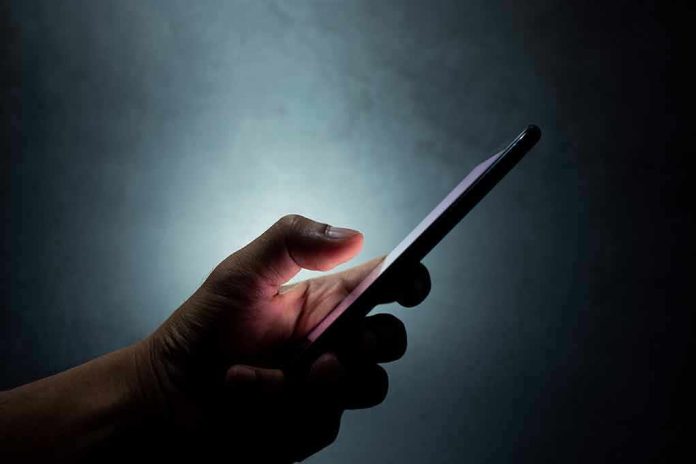
The latest research reveals that Gen Z night owls are caught in a relentless cycle: sleepless scrolling under the blue glow of their screens may be fueling deeper loneliness and anxiety than ever before.
Story Snapshot
- Gen Z night owls report higher rates of problematic smartphone and social media use.
- Loneliness and anxiety are the strongest drivers for unhealthy digital habits.
- Late-night screen time closely correlates with depression, poor sleep, and mental health struggles.
- Researchers warn of a vicious cycle that intensifies with every swipe and scroll.
Night Owls and the Smartphone Trap
Gen Z’s affinity for staying up late is nothing new, but recent findings expose a troubling consequence: those who burn the midnight oil are significantly more likely to fall into patterns of unhealthy smartphone and social media use. Researchers studying over 400 young adults discovered that night owls aren’t just using their devices more; they’re using them in ways that are linked with addiction and emotional distress. This isn’t merely a matter of preference or habit. The data points to a feedback loop where loneliness and anxiety push late-night users toward their phones, but that digital escape often worsens the very issues they hope to avoid.
Many believe that night owls are more creative and even more intelligent than their early-rising peers, but the same traits that make them shine can also leave them vulnerable. Social isolation tends to peak in the late hours, and without real-world connections to lean on, Gen Z turns to social media for comfort. Unfortunately, the relentless feed of content—often negative or anxiety-inducing—can amplify feelings of loneliness, creating a self-perpetuating cycle that is tough to break. The research highlights how digital platforms are becoming substitutes for genuine social interaction, but the relief is fleeting and often counterproductive.
Loneliness: The Silent Catalyst
The study’s most striking revelation is the role of loneliness. While both anxiety and loneliness contribute to problematic smartphone use, loneliness stands out as the stronger predictor. Young adults staying up late often find themselves out of sync with their social circles, missing out on face-to-face interactions that anchor mental health. In their solitude, they reach for their phones, seeking connection through apps and notifications. Yet, the more they scroll, the more isolated they feel, trapped in a digital echo chamber that exacerbates their sense of disconnection. This dynamic is more than anecdotal—it’s quantifiable and persistent, demanding attention from parents, educators, and mental health professionals.
Late-night doomscrolling, a term now familiar to anyone with a smartphone, isn’t just a harmless pastime. The research links it directly to increased rates of depression, anxiety, and disturbed sleep among Gen Z night owls. This isn’t a problem that resolves itself when the sun rises. The cycle continues day after day, with each sleepless night setting the stage for more compulsive screen time and deeper emotional distress. The study’s authors warn that interventions must focus on breaking this loop, offering healthier coping mechanisms and real-world support for those at risk.
The Vicious Cycle: Can It Be Broken?
Anna-Stiina Wallinheimo, a teaching fellow at the University of Portsmouth, describes the situation as a “vicious cycle.” Evening-active young adults are often socially out of sync, which breeds loneliness and anxiety. Their instinct is to seek solace in their phones, but this only deepens the problem, making it harder to reconnect with the world outside the screen. The researchers urge young adults to rethink their habits: instead of relying on digital platforms for comfort, they should be equipped with strategies to manage loneliness and anxiety in healthier ways. The challenge is urgent, as the consequences extend beyond individual well-being to societal patterns of sleep, connection, and mental health.
Experts are calling for schools, families, and communities to step in, discouraging late-night digital coping and promoting interventions that foster genuine social bonds. The stakes are high—not just for Gen Z, but for the fabric of society. As the boundaries between online and offline worlds blur, understanding and addressing the root causes of problematic smartphone use becomes more critical than ever. The hope is that with awareness and action, the cycle can be interrupted, paving the way for healthier sleep, stronger connections, and improved mental health for the next generation.
Sources:
The Guardian: Night Owls Cognitive Function
Fast Company: What Happens to People Who Stay Up Too Late
Fast Company: Cell Phone Bans in School
PLOS One: Gen Z Night Owl Study
MedicalXpress: Loneliness and Anxiety Fuel Smartphone Use
Fast Company: Doomscrolling is Dead




